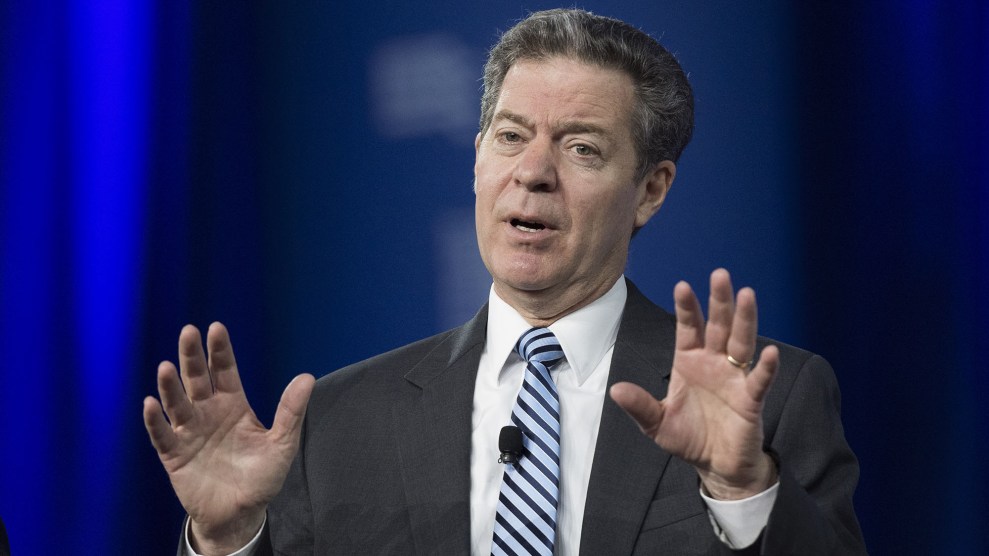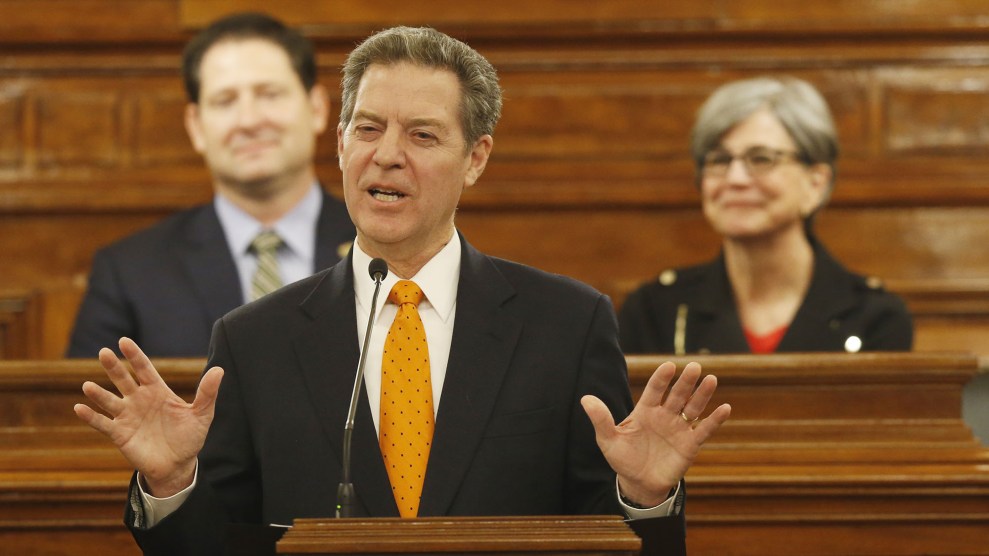
Michael Brochstein/ZUMA
It turns out the companies in charge of assessing whether a state is on stable financial footing aren’t fans of trickle down economics. Tax cuts passed five years ago at the behest of Kansas Gov. Sam Brownback (R) have left the state in perilous fiscal shape. And now, one of the major ratings organizations is warning that it might lower the state’s credit rating after Brownback vetoed tax increases last week.

Early in his tenure as governor, Brownback pushed a series of steep income and business tax cuts—the biggest in state history, with the benefits heavily tilted to the wealthy—as a means of juicing the state’s economy. The cuts, he argued, would spur massive job growth and bring in enough new revenue to offset the lower tax rates.
That hasn’t panned out. Tax collections have regularly come in far below expectations in recent years, leaving Kansas lawmakers scrambling to slash government services in order to comply with a state law requiring a balanced budget. (Most states, unlike the federal government, have balanced budget requirements.)
After a wave of moderate Republicans and Democrats won in last November’s election by campaigning against Brownback’s tax cuts, it looked like Brownback’s policies could be repealed. Two weeks ago, the state House and Senate voted to increase the state income tax (though not all the way back to the pre-Brownback levels) and to end an exemption that allowed certain classes of business owners to zero-out their state income tax. But Brownback vetoed the bill. The House managed to cobble together the two-thirds majority to override the governor’s veto, but the Senate fell three votes shy of overruling Brownback.
Credit rating agency Moody’s isn’t a fan of Brownback’s veto. According to the Topeka Capital-Journal, Moody’s issued a statement Monday warning that the state could see its rating downgraded as a result of lawmakers’ continued inability to find a permanent solution to the lack of revenue. “With the state for now sticking with a lower-tax policy,” the statement said, “Kansas will continue to struggle to balance its budget, consider deferring pension contributions again, and drain its highway fund of funding for crucial transportation projects.”
If Moody’s follows through on the threat, it wouldn’t be the first time Kansas got a credit downgrade thanks to Brownback. Last year, both Moody’s and S&P lowered their ratings for the state, after having previously done so in 2014. Moody’s gave Kansas a negative outlook for the future last year, and S&P said: “The downgrade reflects what we believe to be structural budget pressures.”













